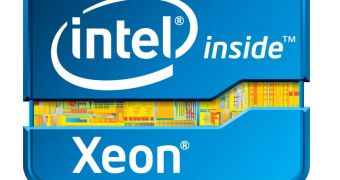The Core-series of central processing units may be the star of Intel's consumer processor collection, but Intel ultimately makes a lot of money, sometimes even more money, from its business- and industry-oriented Xeon line. A line that has just been updated.
From all the news and rumors about the upcoming Haswell refresh, which involves 26 CPUs apparently, it should be obvious by now that Intel likes to launch new CPUs en masse.
Sure, sometimes it does the expected too, releasing one or two high-end processors and making a fuss about them.
Still, from a marketing standpoint, it makes sense to refresh an entire product line, since it allows for the old one to fade away and new sales to start.
The Launch of the Xeon E7 v2 family of processors follows that logic, just like the April-bound Haswell release will.
Xeon E7 v2 bring along more than just clock advantage though, unlike the Haswell, which will have 100 MHz faster core frequencies but otherwise identical specs to current-generation chips.
For one, they have three times the memory capacity compared to their predecessors, making data analysis a lot faster and easier.
It will help with in-memory analytics the most, an increasingly popular method that places and analyzes whole data sets in the system memory instead of HDDs. This way, things like an organization's whole customer database can be quickly accessed, sorted and searched through.
Moving on, Intel's new chips, thanks to having up to 15 cores each and support for up to 1.5 TB of DRAM memory per socket, will enable truly great performance capabilities on 32-socket servers.
Furthermore, bottlenecks are reduced thanks to Intel Integrated I/O, Intel Data Direct I/O and support for PCIe 3. Add to that the Run Sure Technology (reduces frequency and cost of planned/unplanned downtime) and there's a lot you can use to build a new super server and PC.
About 21 companies have already placed orders for Xeon E7 v2 processors. About 40 platforms from ASUS, IBM, HP, Fujitsu, Cisco and many others will debut over the next few months.

 14 DAY TRIAL //
14 DAY TRIAL //